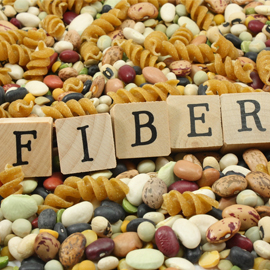
Some people complain of constipation in the aftermath of weight loss surgery. The perception of constipation may exist after going a single day without a bowel movement for some. The truth, though, is that constipation is defined as hard stool or bowel movements occurring less than one time in a week and is frequently related to fiber and fluid intake.
Why Is Constipation So Common After Bariatric Surgery?
There are many potential causes for constipation, including a reduction in your consumption of food and/or water. Part of the problem is that while you’re consuming less food than normal, you’re also consuming less fiber by default. You may have few, if any bowel movements, during the first few days or weeks following your surgery because your diet is largely liquid.
Other contributors to constipation include iron supplements, narcotic pain killers, antidepressant medication, tranquilizers, and weak muscles in the abdomen.
Prevention Is the Best Cure
Consider taking a stool softener in the immediate aftermath of your bariatric surgery if you’re having issues with constipation. Our team will suggest an appropriate one. Once you move on to solid foods, introduce prunes to your diet for their high fiber content. These tips will also help you manage constipation better following the lap band procedure:
- Drink a lot of water. This helps to avoid dehydration as well as constipation.
- Eat more fiber. If you can’t get enough fiber in your diet through foods, consider fiber supplements you can mix into your water.
- Take vitamin C. Look for vitamins in liquid or chewable forms, as pills may be difficult to swallow at this point.
- Go when you need to go. Don’t put it off because the timing isn’t ideal. This could make the problem worse.
Adding Fiber to Your Diet
The best way to add fiber, also referred to as roughage, is to obtain it from foods such as:
- split peas
- pinto beans
- avocado
- bran cereal
- kale
- raspberries
- broccoli
- oats
- brown rice
These foods all contain high amounts of fiber and are great to add to meals or snacks. However, high fiber foods may be hard for you to digest after surgery so introduce them slowly and with care.
Other high-fiber foods helpful after weight loss surgery include:
- beans
- whole grain cereal
- lentils
- fruit, such as plums, apples, raspberries, pumpkin and strawberries (but eat in moderation due to
- their higher calorie count)
Other Ideas to Increase Fiber
If these steps don’t work, make your bariatric team aware that you are having a problem. It may be necessary to make a temporary move to suppositories or enemas for relief. Don’t consider this without discussing it with us first though.
Don’t underestimate the importance of consuming at least three small, well-balanced meals each day once you begin eating again. This includes keeping a food journal of what you’re eating to help determine where dietary improvements, such as the addition of fiber, can be made.
Life after lap band surgery does require some adjustments in order to achieve optimal results with minimal discomfort. You should eat your lean protein first, followed by vegetables, and carbs last (not to mention in small quantities).
Making small lifestyle and dietary changes, such as adding extra fiber to your diet, can have a significant impact on the success of your diet after lap band surgery. Working with your bariatric surgery team at Palmyra Surgical will help make the adjustment to life after surgery as seamless as possible.


